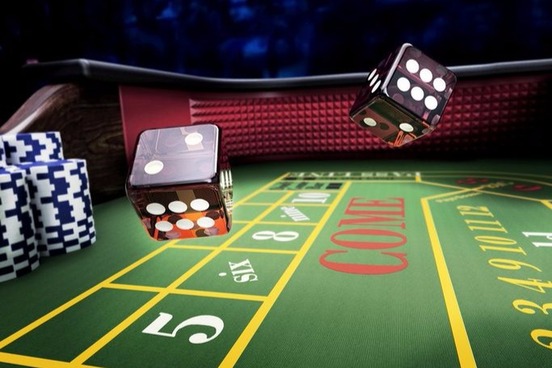
Crapshoot
Definition: something (such as a business venture) that has an unpredictable outcome
Crapshoot is typically encountered today written as a closed compound (single word), but when it first entered the language in the late 19th century it was generally an open compound (“crap shoot”). And no, the crap portion of this word was not a judgmental adjective — it was referring to the game of craps, a gambling game in which a pair of dice are thrown (or shot).
By the middle of the 20th century the shooting of craps was being used, in one way or another, to indicate unpredictability in some venture: an article on boiler rooms in the Chicago Daily Tribune in 1956 says “The aim has been to distinguish between sound investment objectives and income and ‘the old crap shooting game of speculation.’”
The bill states: Complainant would respectfully show to the court that the defendants, as partners or otherwise, are now and have been for the past three months or more engaged in running a gambling house, or, to use the parlance of defendant, a “crap shoot” … that in said house they operate and run a gambling game or game of chance known as “craps,” which is played in the following manner….
—The Tennessean (Nashville, TN), 12 Jan. 1890

Poker face
Definition: an inscrutable face that reveals no hint of a person's thoughts or feelings
Poker is not a terribly old card game, or at least the word for it is not, as it appears to only have begun being used in the 1830s. It didn't take long before we began to use the name of the game to describe the expressionless aspect of a person’s face when trying to not give away any details of what is in their hand.
A good Poker-face, one that will not betray the nature of a hand by change of countenance, is a valuable possession.
— “Cavendish,” The Laws and Principles of Whist Stated and Explained, 1874

Gimmick
Definition: a trick or device used to attract business or attention
In current use gimmick is perhaps most often used to describe some form of marketing or attention-gathering ploy, although it also may be found referring to a physical item, such as a gadget. The earliest gimmicks are believed to have been gadgets, although of a certain type. In the early 20th century, a gimmick was “a mechanical device by which a gambling apparatus (as a roulette wheel) can be secretly and dishonestly controlled.”
The player has little chance to beat the game. The device which controls the strong joint is known in the vernacular as “the squeeze,” “the pinch,” or “the gimmick.”
— Variety, 2 Jun. 1922
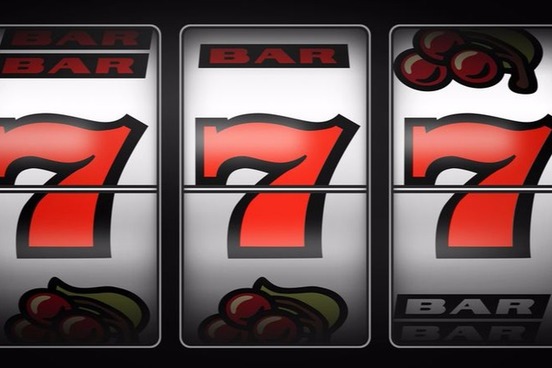
Jackpot
Definition: an impressive often unexpected success or reward
A jackpot may refer to a number of things, including such disparate things as “a tight spot, or difficult situation” and “an impressive often unexpected success or reward.” Both of these meanings are figurative ones, and the earliest sense of the word was a somewhat literal one, as it was used in reference to a pot and jacks. The pot in question was the accumulated bets made in a poker game, and the jack came from the provision that a pair of jacks was necessary to begin betting.
That portion of the community who delight in fulls, flushes, straights and jack-pots came to grief in the Police court this morning.
— St. Louis Post-Dispatch (St. Louis, MO), 19 Jan. 1874
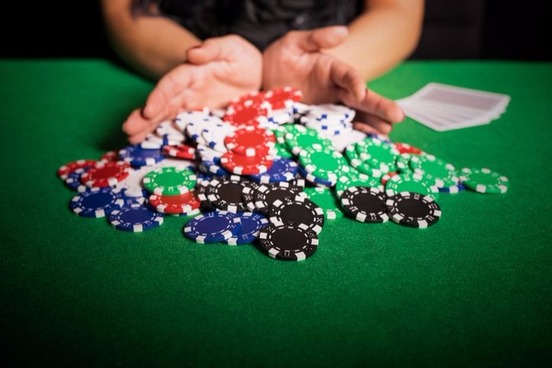
Double down
Definition: to become more tenacious, zealous, or resolute in a position or undertaking
The original meaning of double down, which is likely to be familiar to anyone who has ever attempted to increase their capital at a blackjack table, was “to double the original bid in blackjack in exchange for only one more card.” Both the literal and figurative uses of this word are fairly recent additions to our lexicon, not found in widespread use before the first half of the 20th century.
Players may no longer “double down” on any pair less than tens or aces on the blackjack table.
— Eau Claire Leader (Eau Claire, WI), 3 Aug. 1947
Recent usage also connotes a certain infamous fast-food sandwich, which we will neither confirm nor deny having tried.
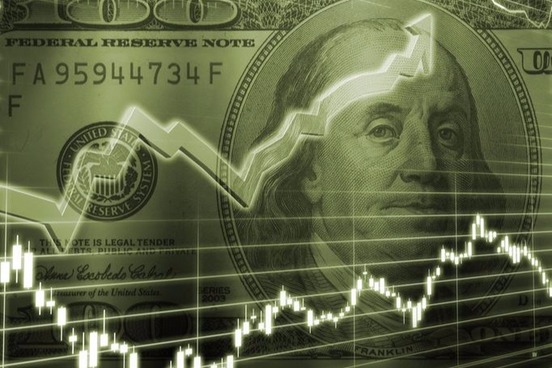
Blue chip
Definition: a business or undertaking with an outstanding record or likelihood of profitability
Well before we had blue chip stocks or companies we had the simple blue chips that were used for betting in card games like poker and faro. As the blue chips were typically assigned the highest value in these games, the term became extended to refer to other financial matters which were thought likely to be profitable. The red chips in card games are generally less valuable than the blue, and red chip may also be found referring to stocks (those which are viewed as less desirable investments than blue chips).
Languidly and with a becoming blase air he would walk up to the faro table of a gaming room, and invest a few hundreds in “blue chips” just as a starting “stake.” He was a marvel at the “call” of the “deal.”
— The Wheeling Daily Intelligencer (Wheeling, WV), 18 Jan. 1866
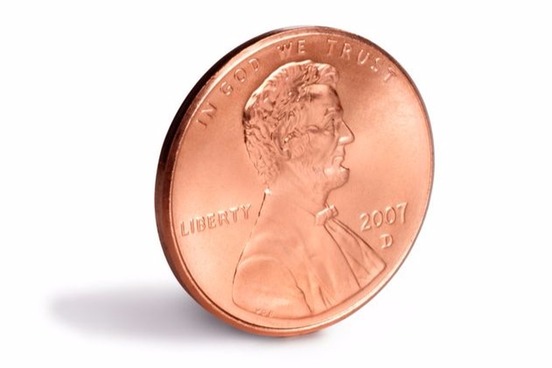
Penny ante
Definition: any dealings on a small scale
The ante was borrowed directly from the Latin word of the same spelling, which means “before” or “preceding.” Thus, your game of penny ante poker shares an etymological root with such noble words as antemortem (“preceding death”), antepenultimate (“coming before the next to last in any series”), and antediluvian (“of or relating to the period before the flood described in the Bible”). Penny ante referred first to an actual game of poker, played for small stakes, and soon after came to be used for any manner of small scale endeavors.
Napoleon spends most of his time playing penny “ante” with the three graces.
— The Weekly Wisconsin (Milwaukee, WI), 8 Nov. 1854
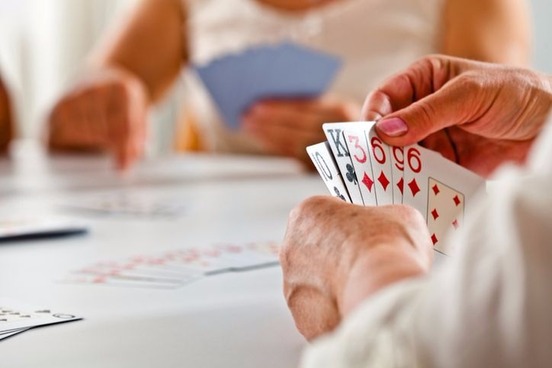
Aboveboard
Definition: in a straightforward manner
Aboveboard is one of the older words on this list, dating in use back to the late 16th century. The origin of the word is believed to have come from card playing, insofar as it was considerably more difficult to cheat at such games when one held one’s cards over the table (above the board), rather than under. The word was also used at the same time in a figurative sense, although most of the early examples of its use make reference to cards.
It may be imagined I abuse his carriage, and hee perhaps may suddenly bee thought faire-conditioned: for he playes aboue boord.
— John Stephens, Essayes and Characters, 1615And if in the meane while he be not created Cardinall, by reason of his infamous bastardie, and foule vellaquerie, & too open playing aboue boord: yet let him be a Cardinall, and a card excarnificable, vested with Cardinals robes of yellow, blew, and gréene, like the Knaue of Clubbes.
— Matthew Sutcliffe, A Ful and Round Answer, 1604





